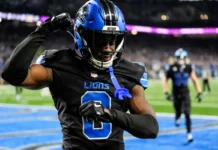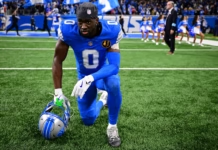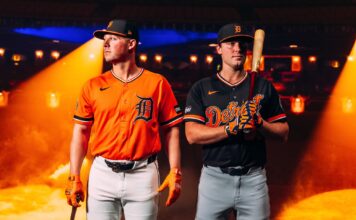
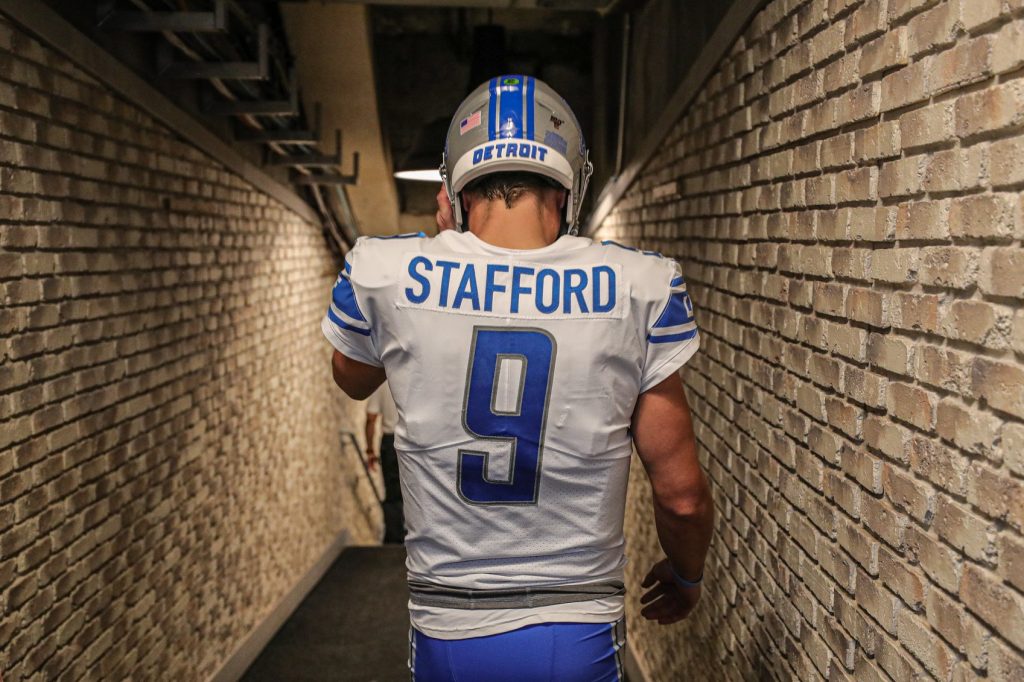
Lions quarterback Matthew Stafford admittadly isn’t a big social media guy which in today’s day and age gives you a greater degree of privacy, especially when it comes to certain viewpoints or opinions you may have. This goes double for a guy like Stafford who would undoubtedly bring that extra level of fame and attention to whatever social media account he decided to divulge himself into.
With that in mind, Stafford has also never been a guy that would dive headfirst into a social issue that caught his attention like a LeBron James or openly proclaim his faith on the field like Tim Tebow. Stafford was simply a guy that would go out on the football field every Sunday, play his game, and depending on how things went would either be lambasted by Lions fans on Monday or lightly criticized if Detroit actually won the game.
Stafford’s own silence, however, came to an end this past year. In the wake of the George Floyd murder at the hands of the Minneapolis Police Department, Stafford started to become more outspoken on the subject. His wife, Kelly Stafford who has for the most part been much more outspoken them himself even came out to apologize for her past criticism towards Colin Kaepernick’s silent protest during the National Anthem. Matt Stafford himself even took to a knee with some of his teammates during the National Anthem last Sunday prior to their game against the Bears.
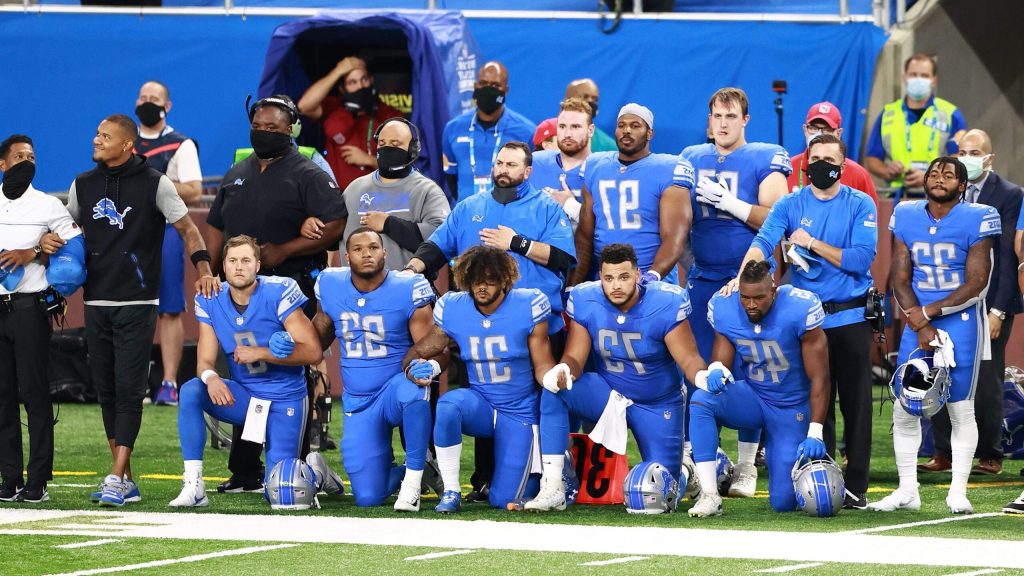
But perhaps there’s been more to Stafford’s new approach to being more public on social issues, specifically those dealing with racism?
In a write-up by Stafford posted to The Players Tribune entitled, “We Can’t Just Stick to Football”, the Lions quarterback recounts a time this past summer when he was a personal witness to racism directed towards his black teammates.
Shortly after George Floyd was killed, I was down in Atlanta doing my off-season workouts. It was obviously complicated because of COVID, so I had arranged to use a field where I could do some work with my receivers. The first one who could make it to Atlanta was Danny Amendola.
Danny and I spent four days working out together. No problems at all. It was great. A week later, I went to do the same thing, at the same field, with four of my black teammates. We were just starting to dump all the footballs out on the field and some of the guys were still stretching when a gentleman came out and told us that we were trespassing — and to leave immediately.
We didn’t even have our cleats on yet. I remember I was standing there in my socks, just kind of stunned and confused, like, What?
But he didn’t even want to listen.
We were still gathering up the footballs and trying to figure out another spot where we might be able to go when the gentleman pulled out his cellphone.
He said, “I’m calling the police.”
After everything that we’ve witnessed over the last few months, and how situations can escalate for no reason at all … and here the police are being called.
We were there for maybe 10 minutes total. Nobody said a bad word to him. And he still called the police and told them that we were being “uncooperative” and “not leaving the property.”
Obviously, we got out of there immediately.
Stafford went on to recount a time when Trey Follows disclosed to him how he manages himself when dealing with the police.
But the one story that stuck with me so much was when Trey Flowers talked about how he copes with the anxiety of dealing with the police. Trey was explaining that if he were to ever get pulled over in his car — something that I have experienced many times without even thinking twice about it — he would roll down his window, put both hands on the wheel, and ask the officer if he would like him to step out of the car so he can handcuff him.
Just so that he is not seen as a threat.
Just so the officer can’t say, “Oh, he was reaching here, he was reaching there.…”
Just so he makes it back home.
If you’re a white person, all I’m asking you to do is to really think about that. Imagine that being your first instinct when you see police lights in your rearview mirror.
No one in America should have to feel this way.
I’m not going to hold anything against Stafford for just now coming around to use his voice in speaking out against racial injustice. We all have our personal evolutions in regards to this sort of thing and quite frankly I’d feel like a hypocrite if I hurled any kind of criticism towards Stafford for essentially being “late to the party” when I myself have undergone my own social changes over the past few years.
Right now I’ll offer nothing but praise for Stafford for doing what he’s done regarding this. Not to mention for the longest time, I’ve seen sports as something that really hasn’t been that important. And that’s certainly the case to some extent. Winning and losing on the field, ice, or court isn’t ultimately that important. But when a sports figure, with a large platform, and a big voice use everything in their arsenal to try and initiate change, that’s when sports truly becomes important.
And we’ll hear the dissent. We’ll hear the typical nonsense directed at Stafford that he’s somehow ruining sports for them because he’s getting all “political”. But to them, to the people who want athletes to do nothing more than “shut up and dribble” or “shut up and pass”, there really is no perfect protest. The “perfect” protest for them is the one they can easily push aside and ignore. They’re the protests that continue to enable their silence which only leads to more knees on necks and bullets in backs.




